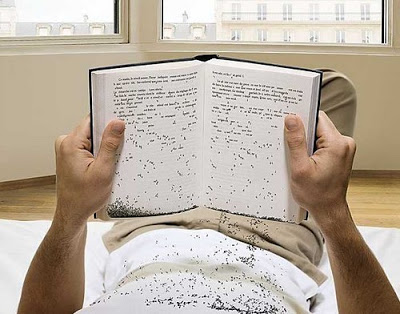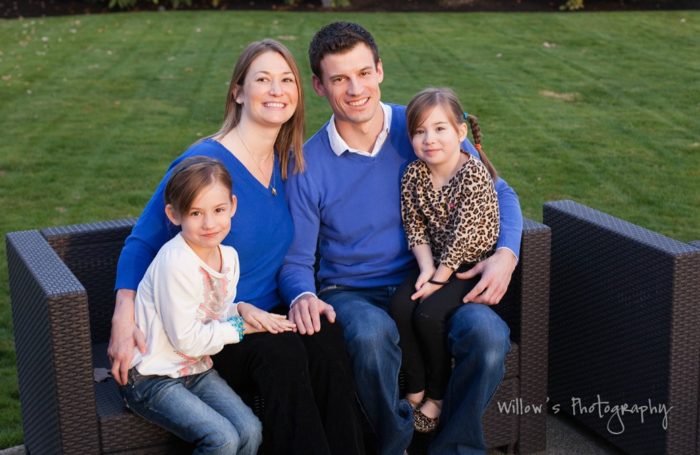This is one of many True Story interviews in which we talk to people who have experienced interesting/amazing/challenging things. This is the story of Joanne and her dyslexia diagnosis.Tell us a bit about yourself!
I’m 29 and born in London. I’ve had too many types of jobs to get into but after a very long time of not having the confidence to do so, I’m finally hoping to combine my fun stuff with my work stuff. I’m in the processing of retraining to be a fashion designer. This has always been my love – but some times it takes a while to really come to terms with that. Too put it out there is a scary and thrilling thing, your letting a part of you go out into the world. And it will have to be a reality and not something just buzzing around in your head anymore.For those of us who don’t know, could you tell us about dyslexia?
It’s hard to categorize dyslexia, as it varies from person to person. There is a still lot of discussion about the definitions in the intellectual world. Dyslexia is a generally termed as a learning disability that normally affects your ability to write, read, your memory and language skills. I guess I only really know about my own experiences of it. Many people are unlikely to share that they’re dyslexic, especially in work environments. Maybe I still haven’t leant to fully embrace it and am well practiced not to bring it up.It terms of my own symptoms I struggle a lot with reading, I have to push myself to read and get very easily distracted. I rarely read books. Often words seem to merge or just move on a page. It can be hard work. I have very poor short-term memory; I can’t repeat very simple letters and words recited to me. I can’t decode. My grammar and spelling are extremely poor, I can spend a very long time drafting and checking. I miss out words and chunks of sentences without knowing; even when I have read it 10 times I can’t see the words are missing. Often very simple multiplication is very challenging. I have a bit of an issue with balance, which I was told could have a connection to dyslexia.
Anyone can have it; it’s not specific to a group or social class.
How old were you when you were diagnosed?
I was tested when I was 10 in 1991. It was quite rare that it was picked up at such a young age and even being tested was unusual back then. In the early 90s knowledge and understanding were still limited – not only by the general public but also by the education establishment at large. I owe a lot to my very progressive teacher at the time who suggested the tests. She had noticed all my writing made no sense and was frequently just a jumble of words.
I was tested at a special education establishment by the local authority. I still remember the building and what the room looked like. I was confirmed dyslexic after a written report was made. I don’t really remember being told that I was dyslexic, but a general feelin of annoyance is an overriding memory. I do remember that the report put my age in the core skills as that of 5 year old. That annoyed me.
What kind of assistance did your school and teachers give you?
I didn’t get assistance at school – simple as that. But my mum decided to take me to a personal tutor instead. Great decision – I was lucky she could afford it. He was called Stephen and was dyslexic too – and a teacher. Meeting him reassured me that you could do normal jobs even if you were dyslexic, which was an important realization to have at that impressionable age. I went to see him for four years and he made a huge difference in my education. He re-taught me the basics and how to use my brain in a different way. I really do wonder where I might be if I hadn’t had that experience. I’m not sure I would have got into university.
I was re-tested when I was 20 at university and ‘statemented’ – which means my disability is registered and recognized by the government. This allowed me to extra time in my exams and was a huge help. A few people made comments like “Why should you get that extra help and not me?” I’m used this kind of sentiment now, people find it hard to accept you can be articulate intelligent person and still be dyslexic.
Is it possible be ‘cured’ of dyslexia?
I don’t think so, though I’d be interested in others thoughts on this idea. For so long now, I’ve learned to work in a different way than most people. I’ve created my own unique coping techniques to deal with the very day to issues I have. They are my ‘normal’ and of course they don’t seem strange to me. Thinking about it, I’m not too keen about using the word cured in relation to dyslexia. I don’t think I need to be cured, after all I wouldn’t have been afforded all the great things that being dyslexia has given me.
How does dyslexia affect your daily life?
In a work context, I’m very conscious of my written communications to other colleagues. So I’m spending a lot of my daily work time checking. I do have to ask people to often repeat things over the phone especially when they are spelling names or numbers. This can be a little embarrassing and I can get self-conscious about it, especially when callers are irritated by it. I sometimes have problems remembering how to spell my surname, which is also embarrassing when you’re in a bank. Likewise working out the amount in coins to pay in a shop can take some time. I have learned to create silly banter about my rubbishness at doing things; it helps to conceal the real issues I have when interacting with the public. I think lots of dyslexics do this. Consequently lots of us are very social outgoing kind of people as it can be an effective defense.
Are there any benefits to having dyslexia?
Lots of great things can come from being dyslexic.
I often think my creative ability comes from being dyslexic. I don’t just mean this just from an ability to be arty but to see problems and issues in a different more creative way. This can be useful in everyday life and also be a real skill in big business – especially as they look for people who can strategize and problem solve. Many very successful entrepreneurs are dyslexics!
It can make you more empathic towards people who also struggle in areas of their life. And also amazingly resiliant – it has always pushed me on to succeed when others doubt me.
What are the biggest misconceptions about dyslexia and the people who have it?
That you are stupid if you are dyslexic – I don’t think I need to say it any plainer terms. Most dyslexics at some time or another have had this prejudice leveled at them. If you’re not strong, it can affect you deeply and I’m always saddened when I hear of people who never end up going for their dreams because of the ‘stupid’ tag leveled at them.
If we have a friend or family member with dyslexia, how can we help?
Give them lots of support and patience. Help them to find groups that will give them advice and support on whatever level they need it. Here in the UK there are channels to obtain support and help from the government so look into this. Don’t treat them differently, but also don’t assume that you know what it’s like to be dyslexic because you always can’t spell that one word (I’ve heard that one a few times).
What advice would you give to someone who’s been recently diagnosed with dyslexia?
Don’t panic, you’re in a big club!
If you feel you need it, you might benefit from some extra help with education, lots of local colleges will run these kinds of courses. If you feel you can, talk to someone at work in confidence about support they might offer.
I would suggest talking to people whom you really can trust. Some people react in a strange way to it. But ultimately embrace it and use it, it’s likely it will give you advantage because some unique abilities!













Joanne-
Thank you for sharing your experiences. I'm a reading specialist an an elementary school. When I went through graduate school we read about Dyslexia in textbooks, but I have yet to hear from an adult that is living with it. You story is much more powerful than any case study. My students struggle with reading everyday and it's so frustrating for them. I'm sorry that you did not get help at your school, since I work so hard everyday for my students. It sounds like your tutor really was a lifesaver! Thank you again for sharing.
Thank you for sharing your story. I can def relate. I was diagnosed with dyslexia and a visual perceptual learning disability when I was 8.
I agree with the statement that it cannot be cured but it can be coped it. I still make errors like writing "b" for "d" from time to time but I know I can check my writing etc. I also strongly agree with the labels that are put on people. When I was younger I was desperately afraid that people wouldn't think I was smart because of my dyslexia or LD. Its a fear that I've worked on but has never fully gone away. I actually tested out of receiving assistance like extended test time when I was 16 but the fear that I'm not smart enough is still very much with me even though I attend a top American law school.
Your post has inspired me to think about the ways that my dyslexia and LD has been an asset to me. Thank you 🙂
I hope you don't mind but i created a link to this interview on my latest blog post. Thanks for sharing this.
http://nixnax-nixnax.blogspot.com/